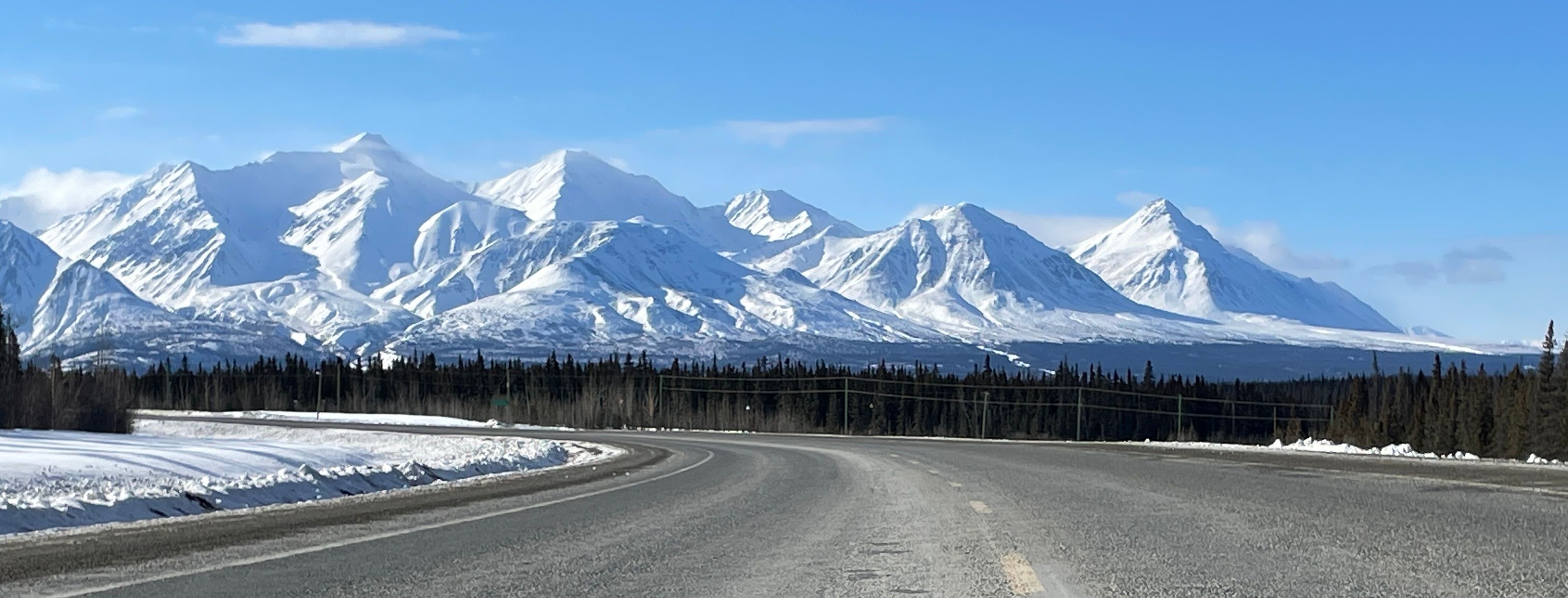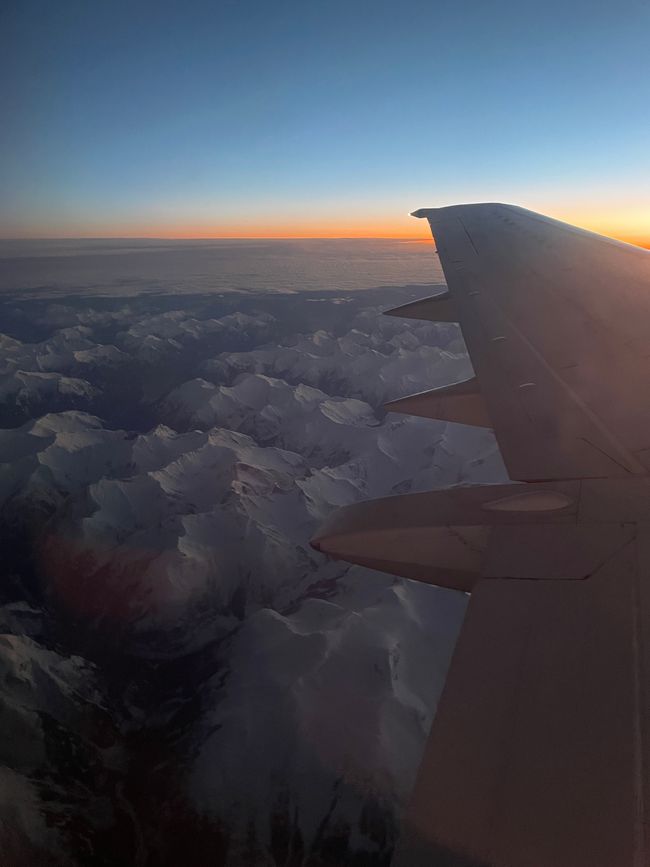26.04.-12.05. - Cambridge / Jungle
خپور شوی: 13.05.2023
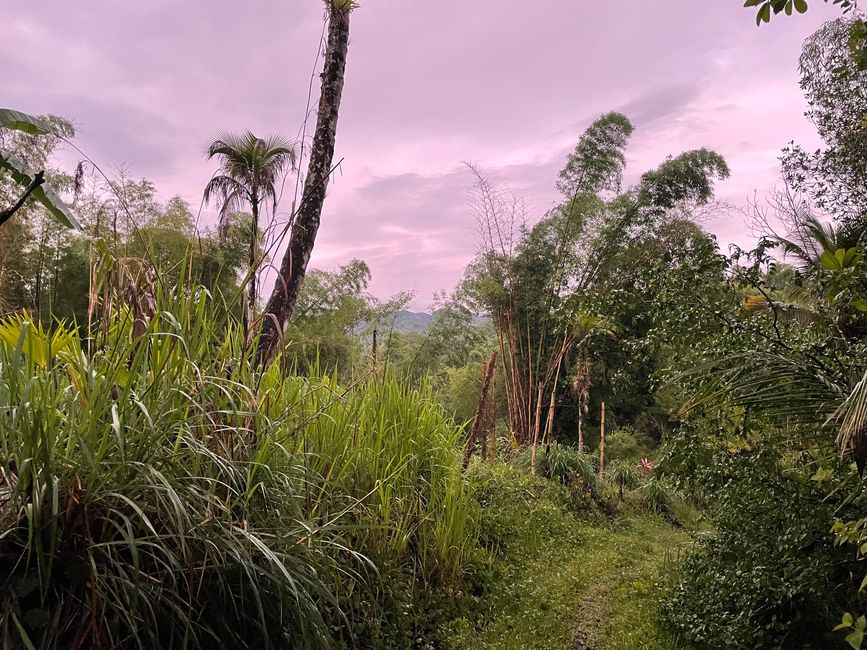
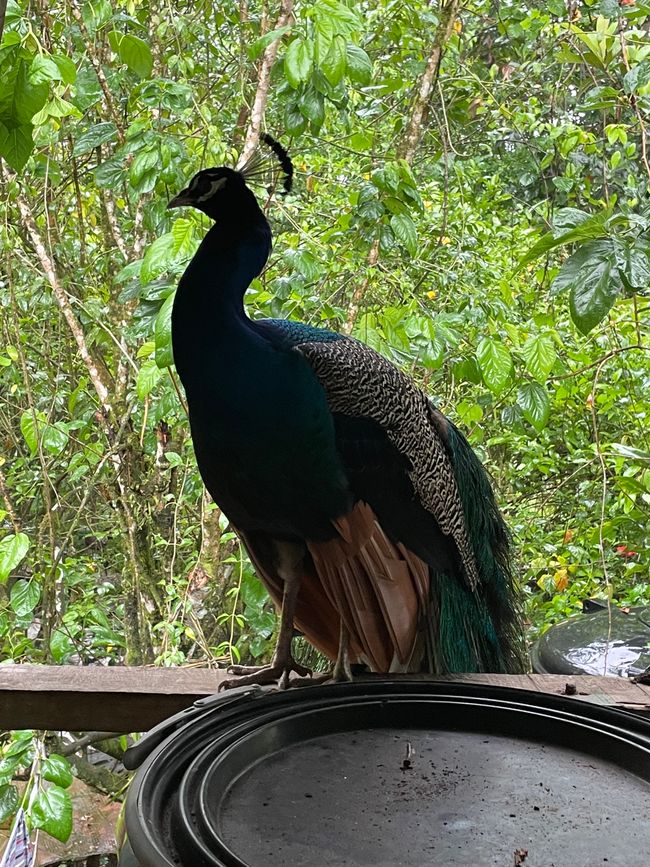
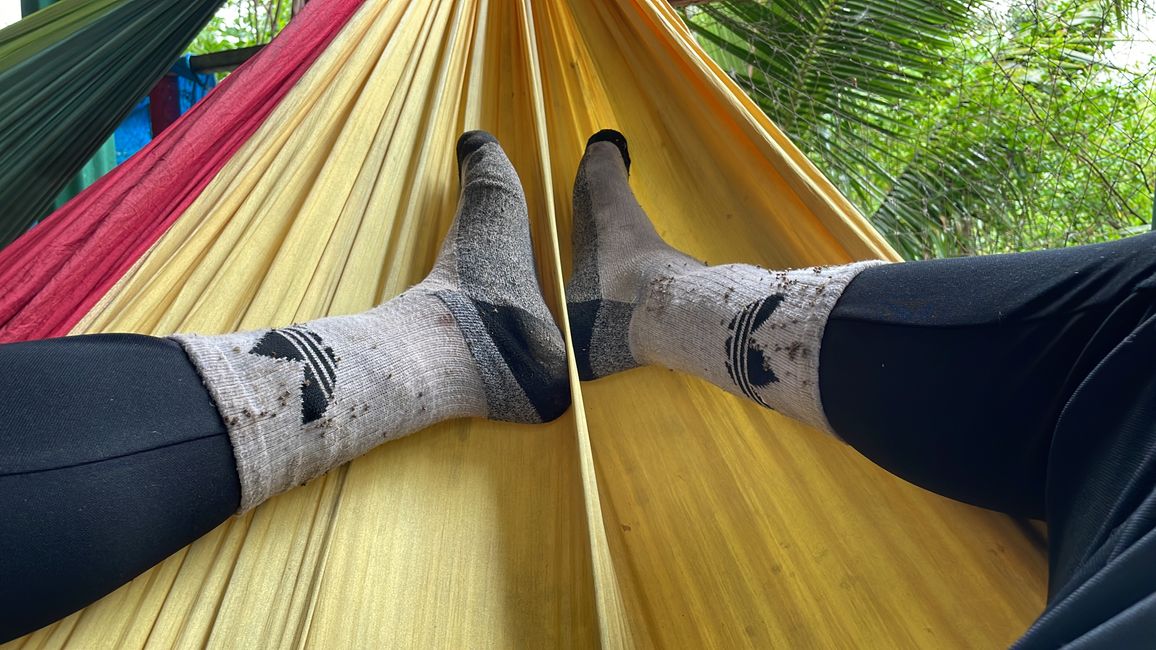
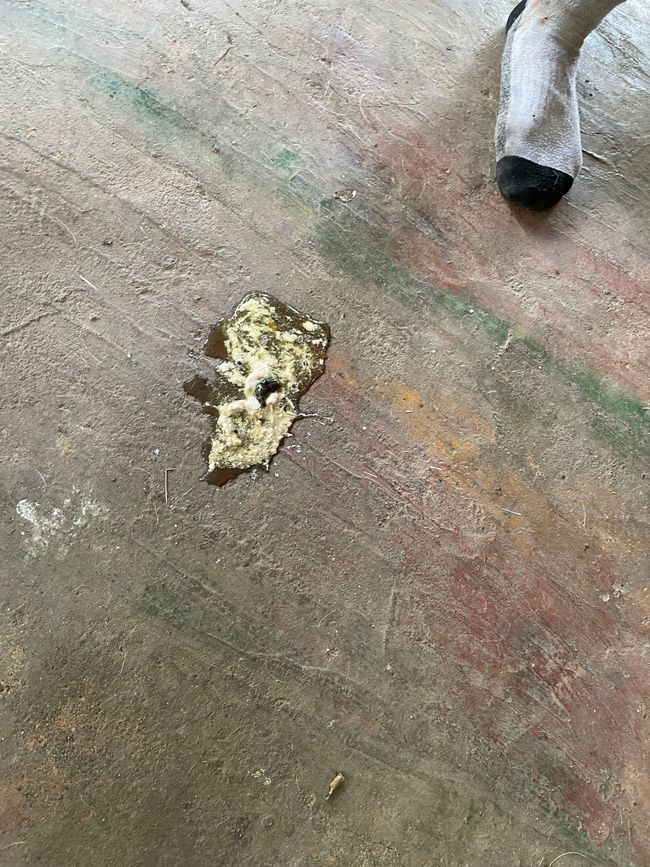
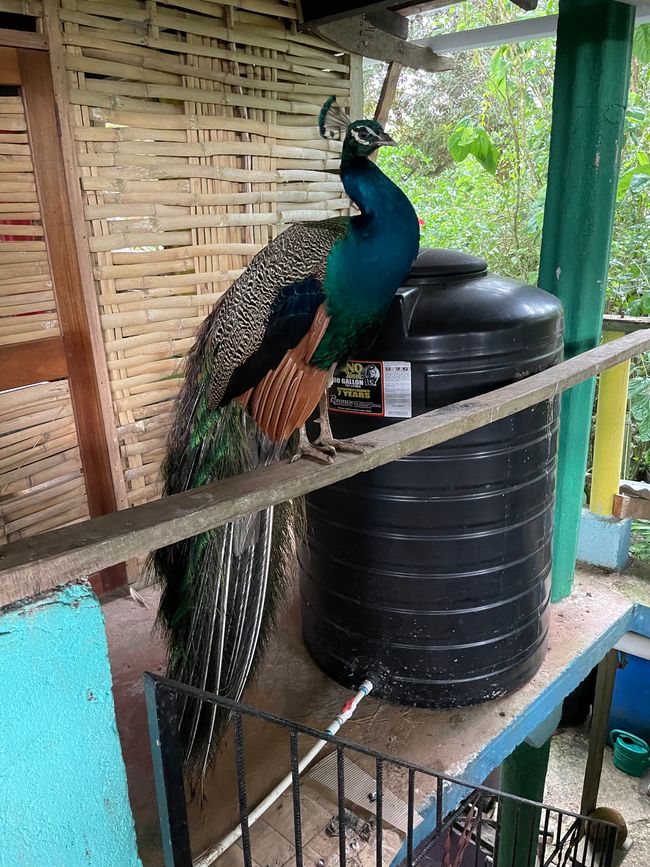
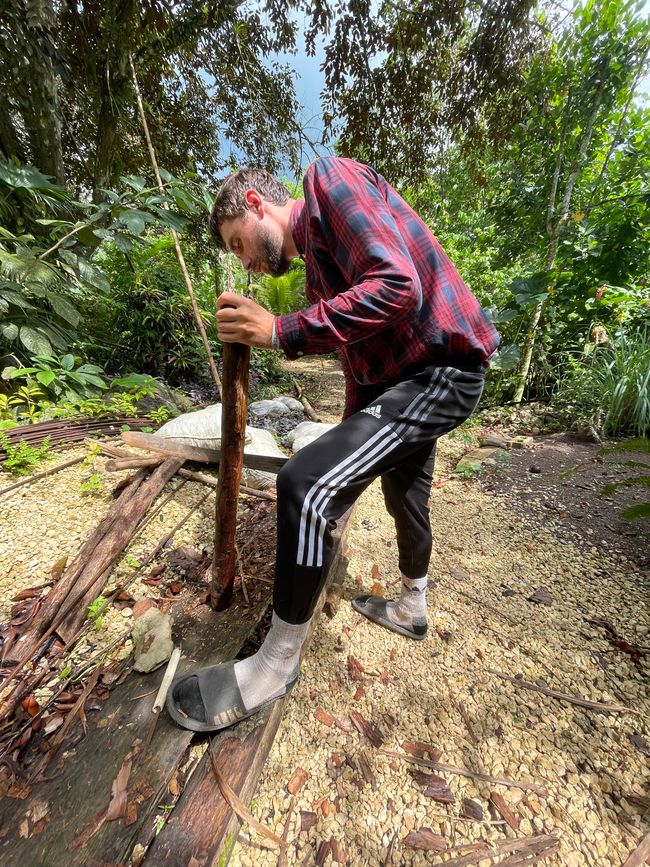
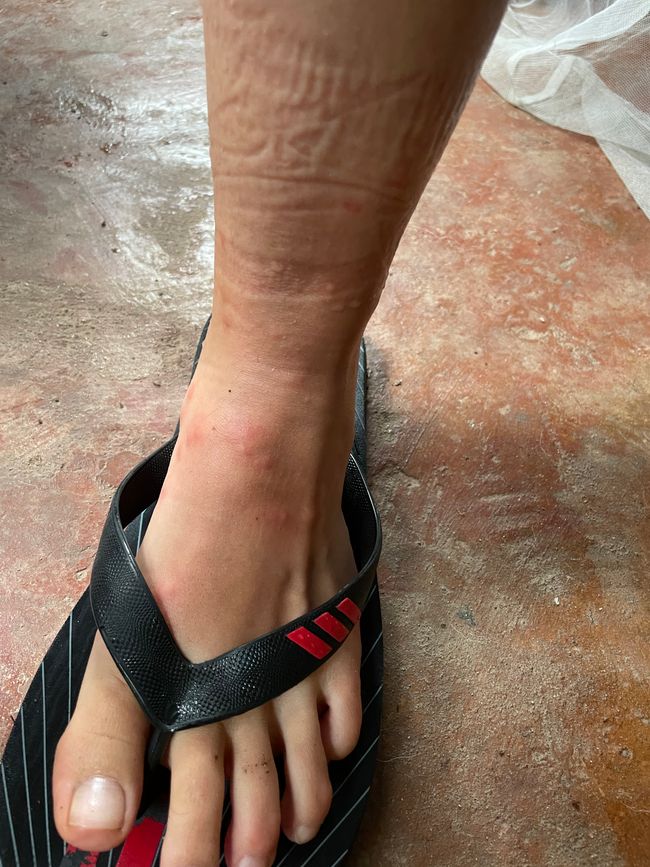
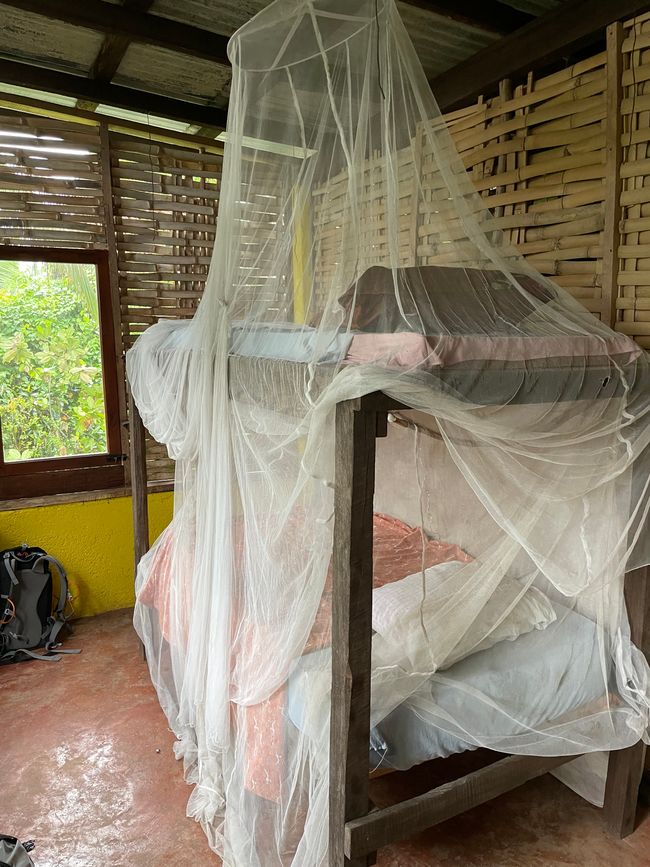
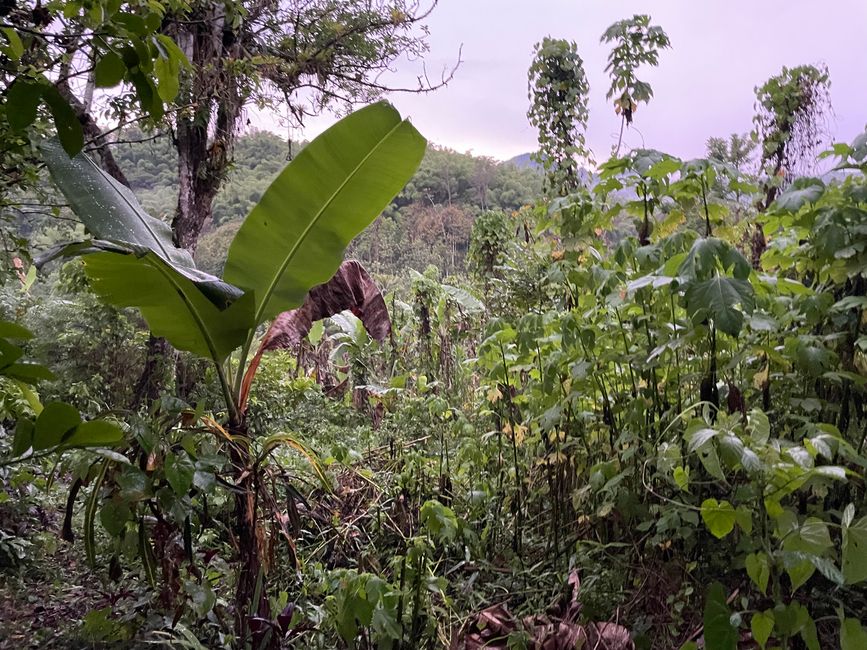
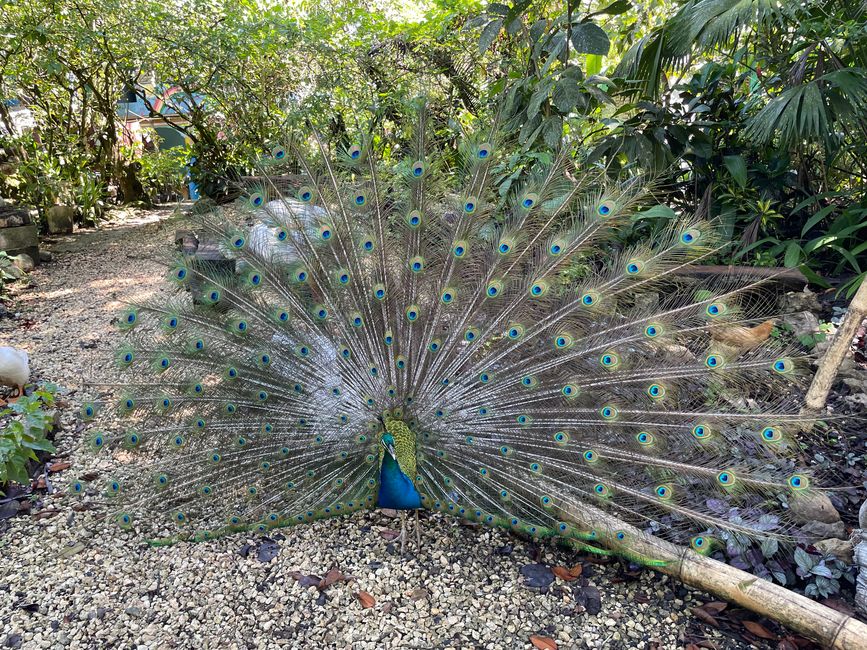
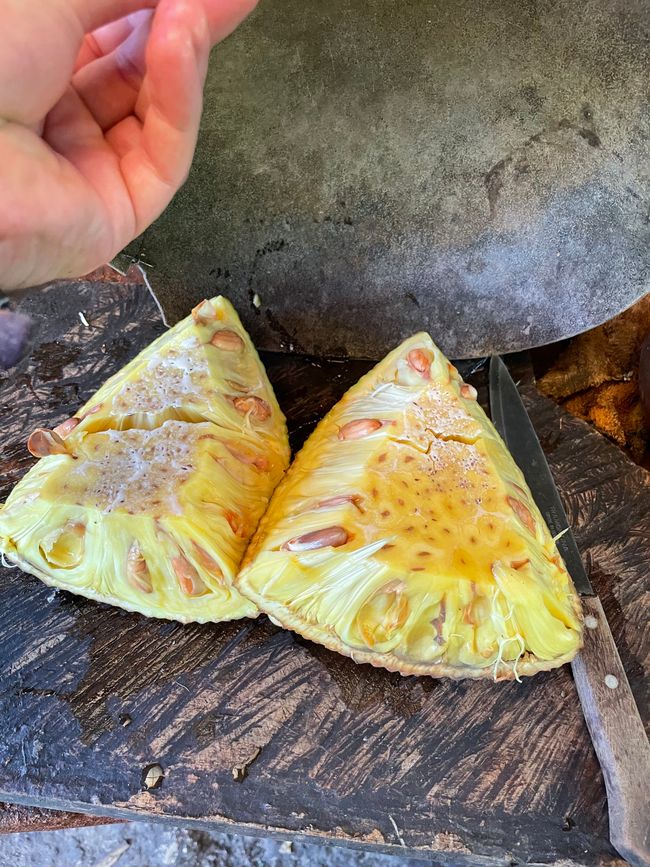
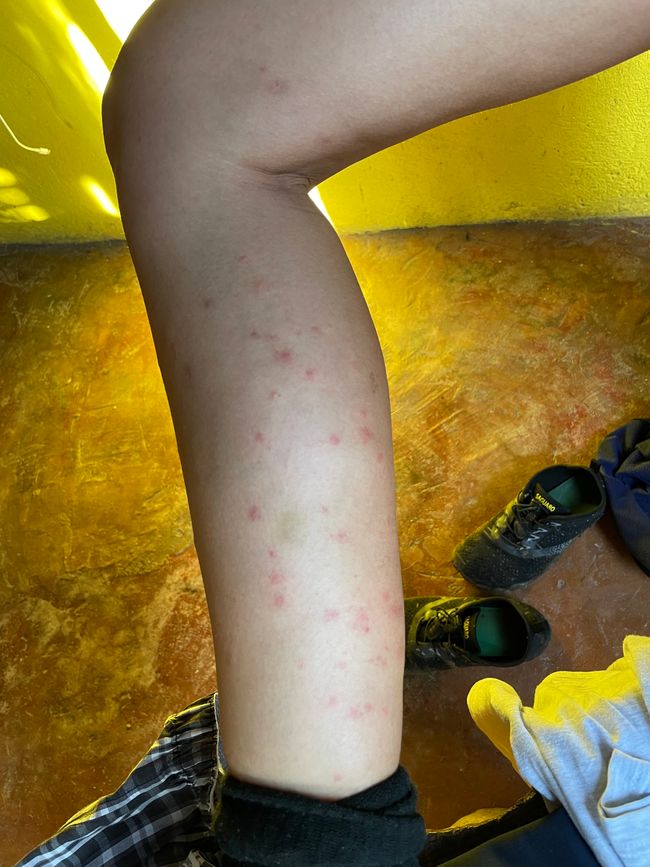
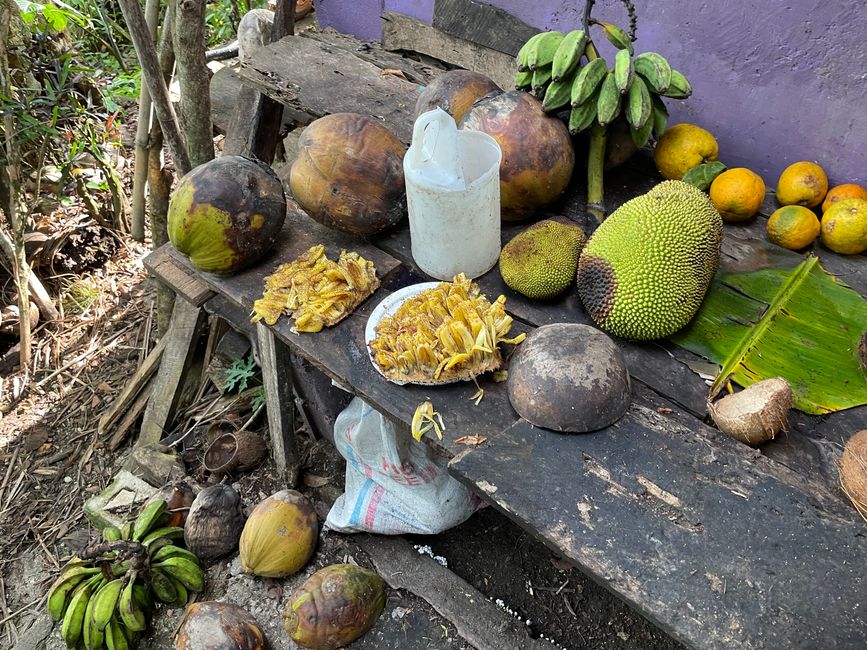
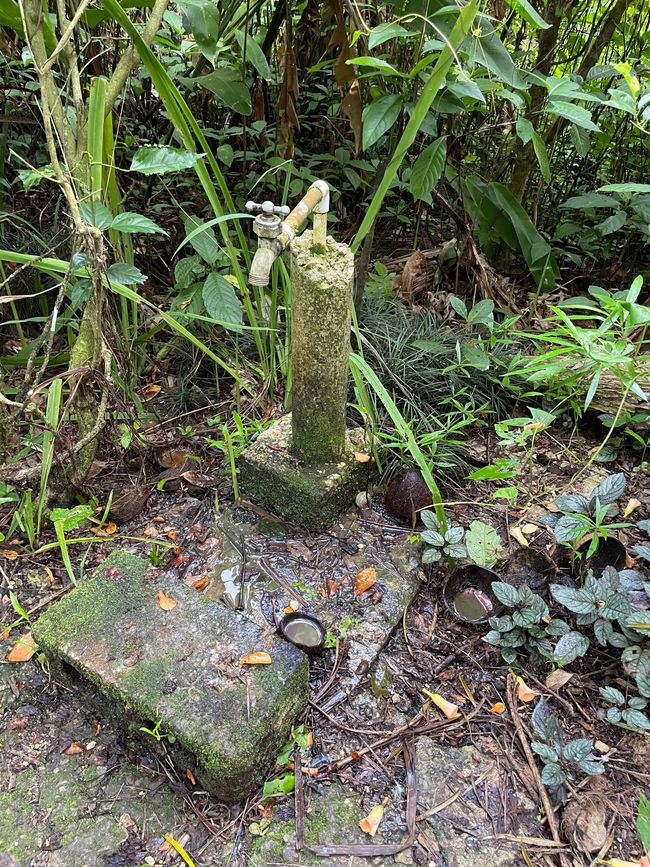
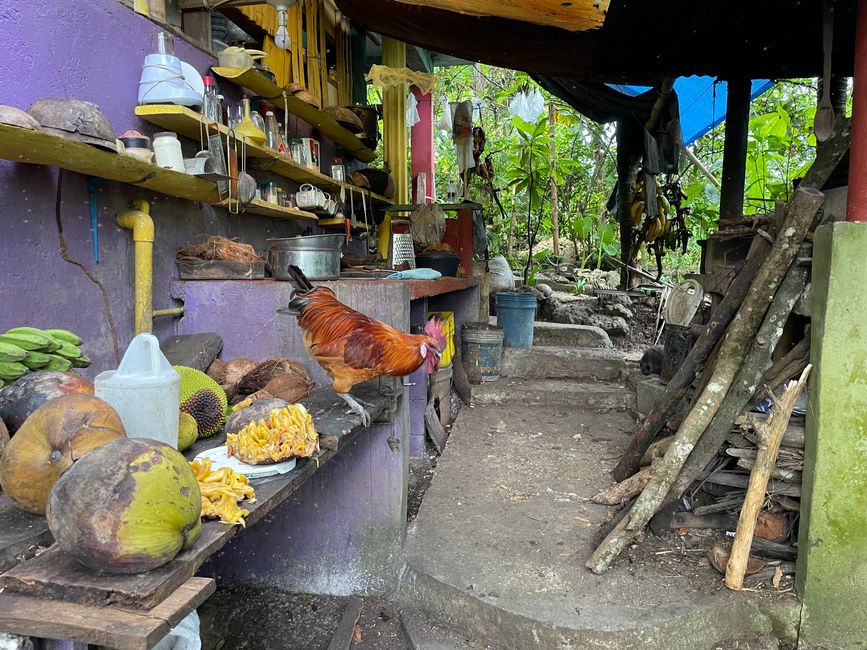
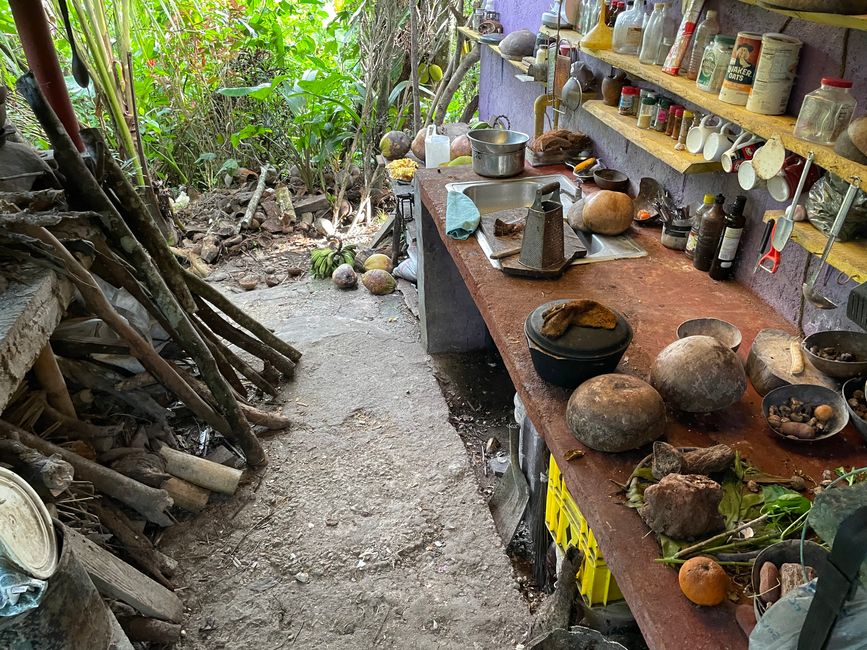
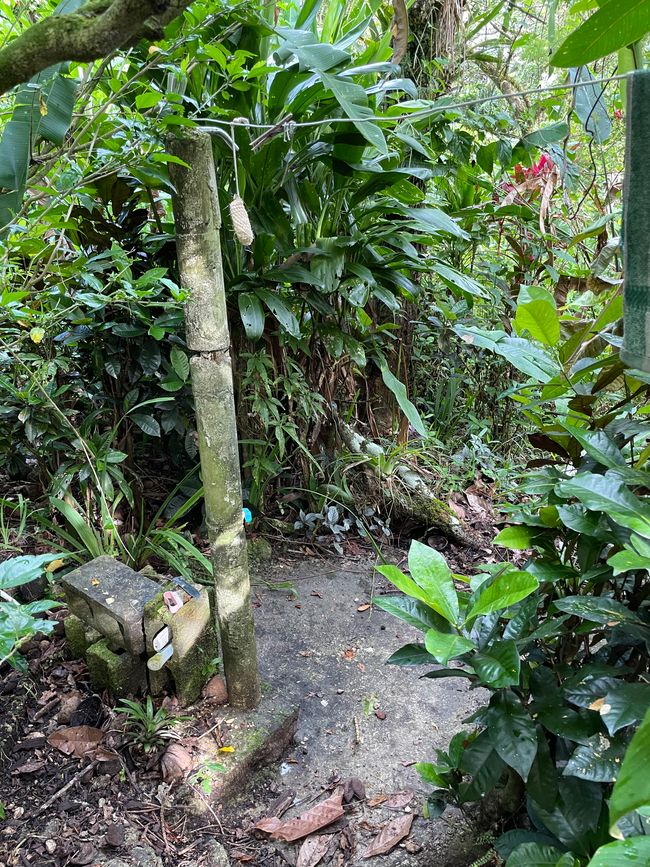
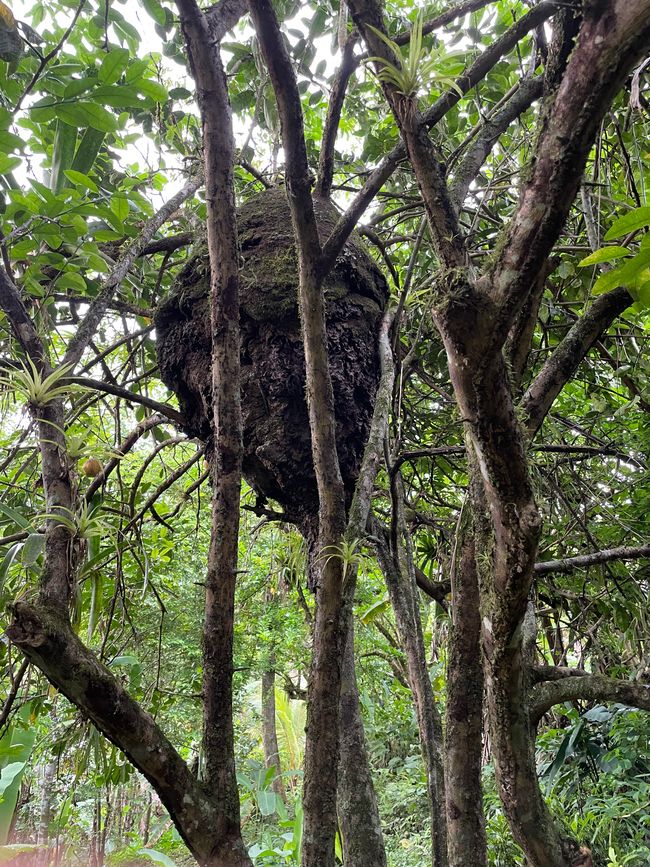
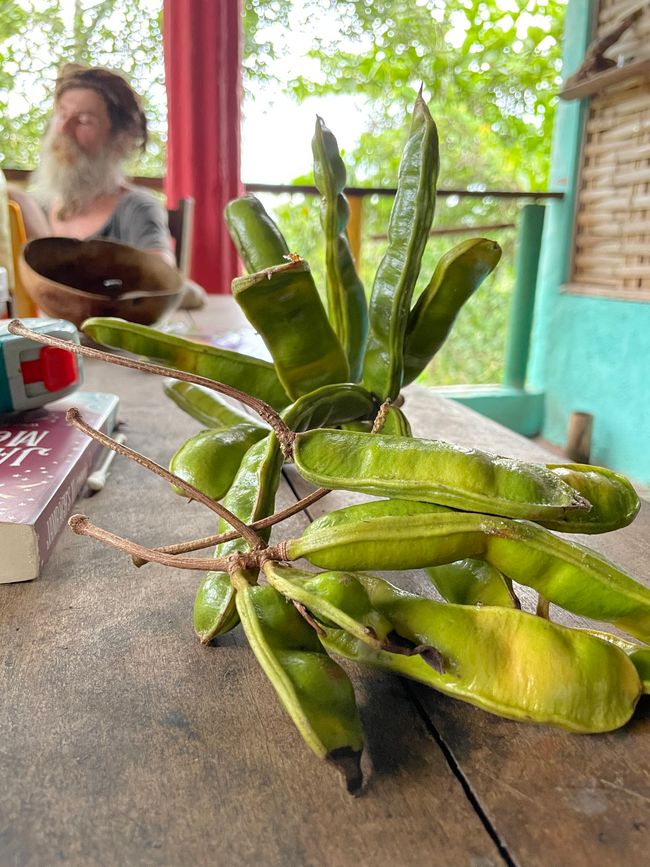
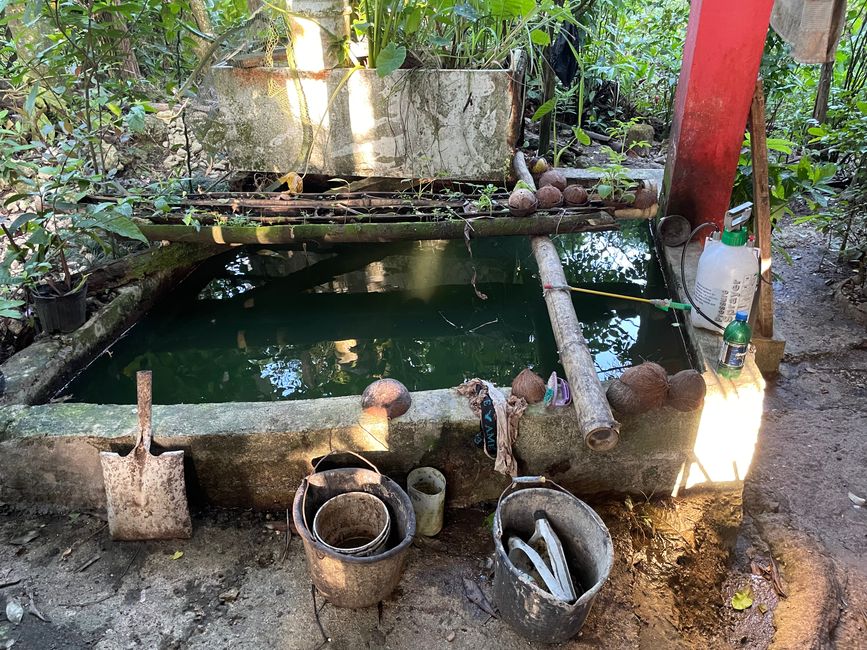
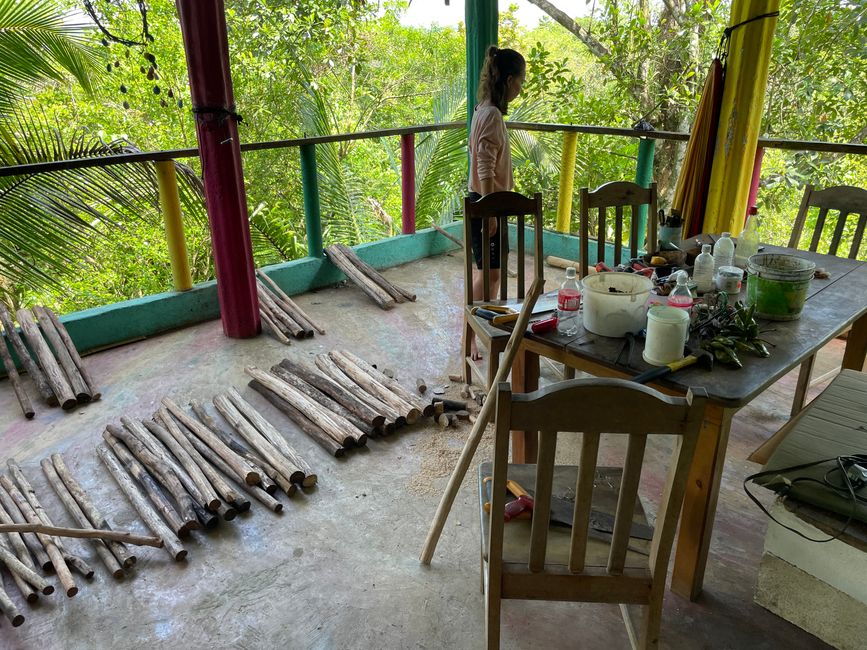
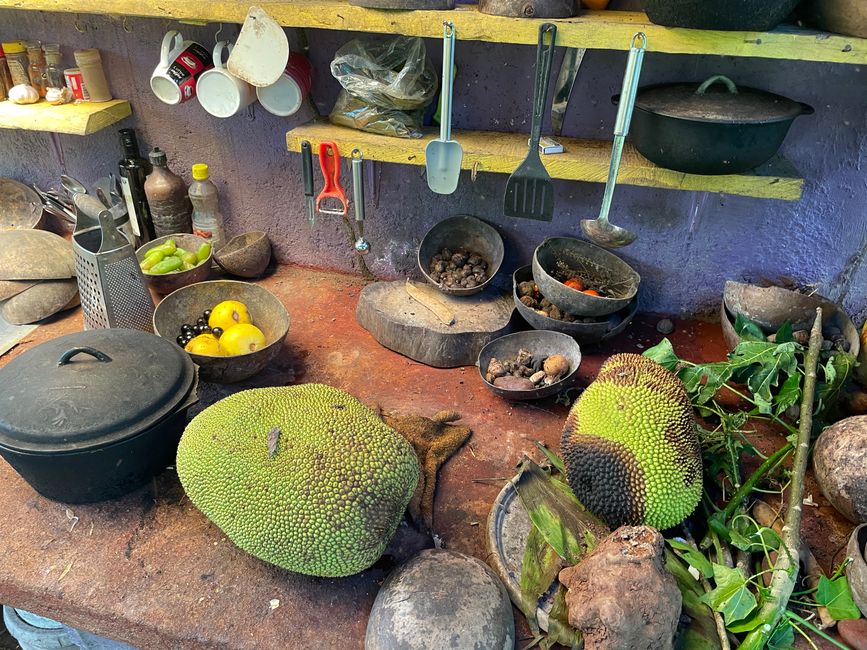
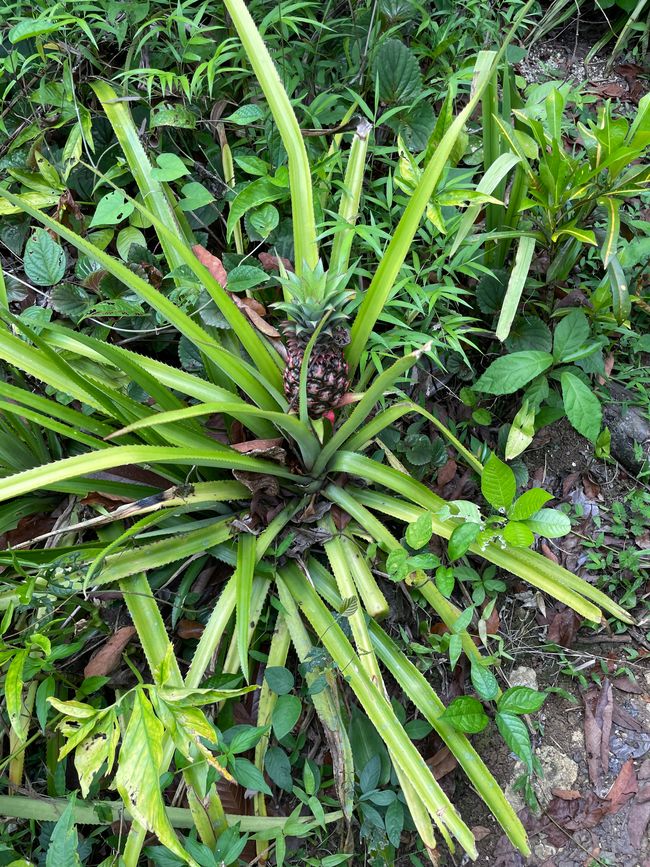
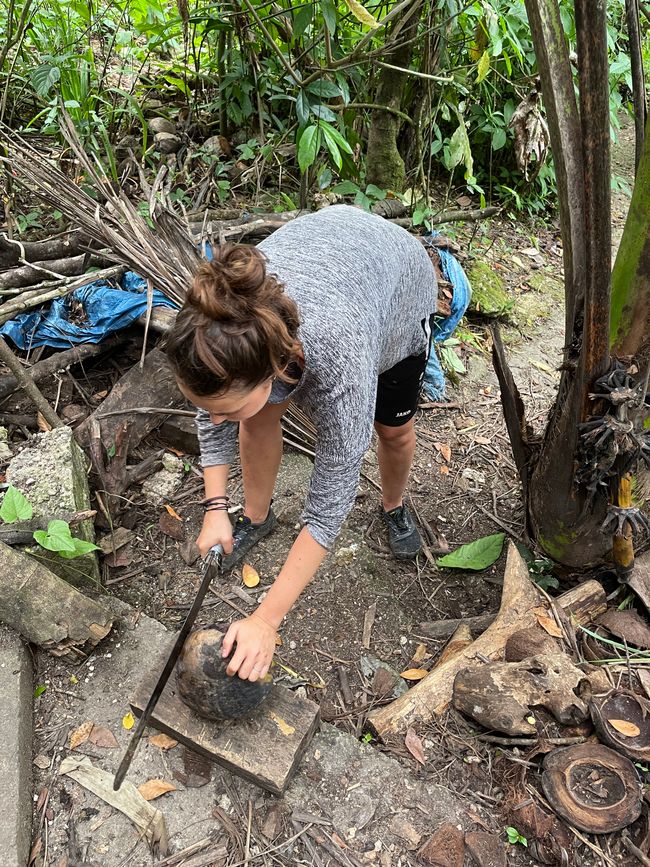
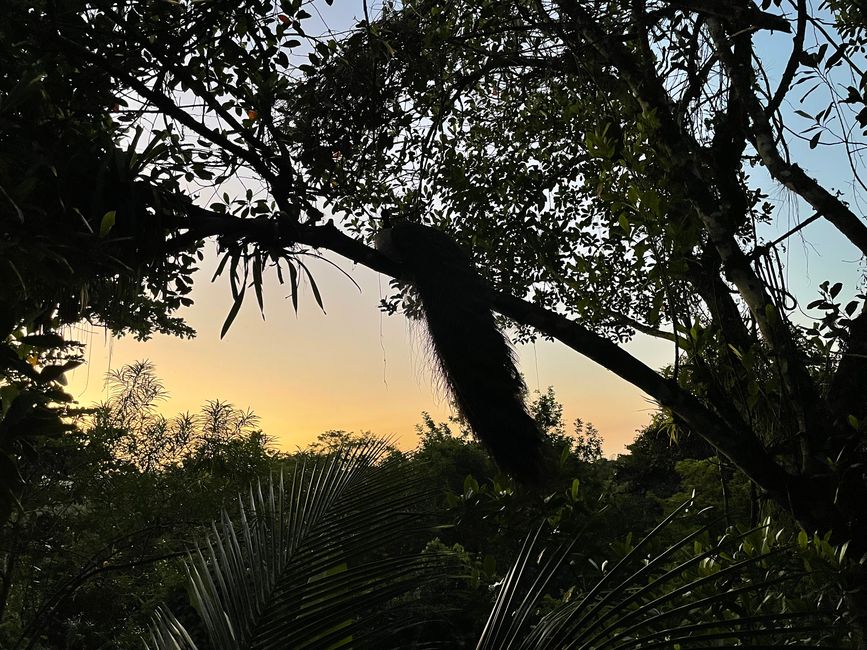
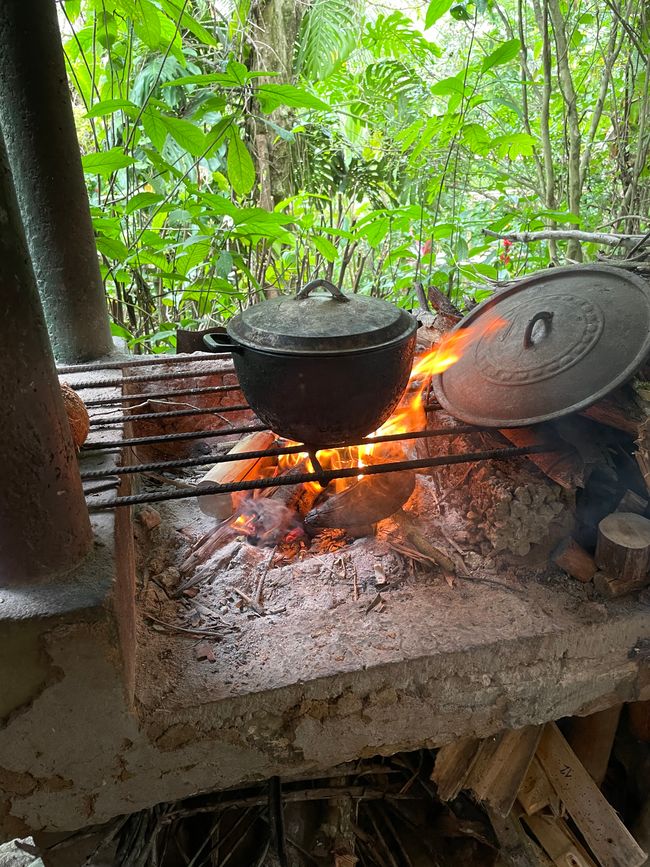
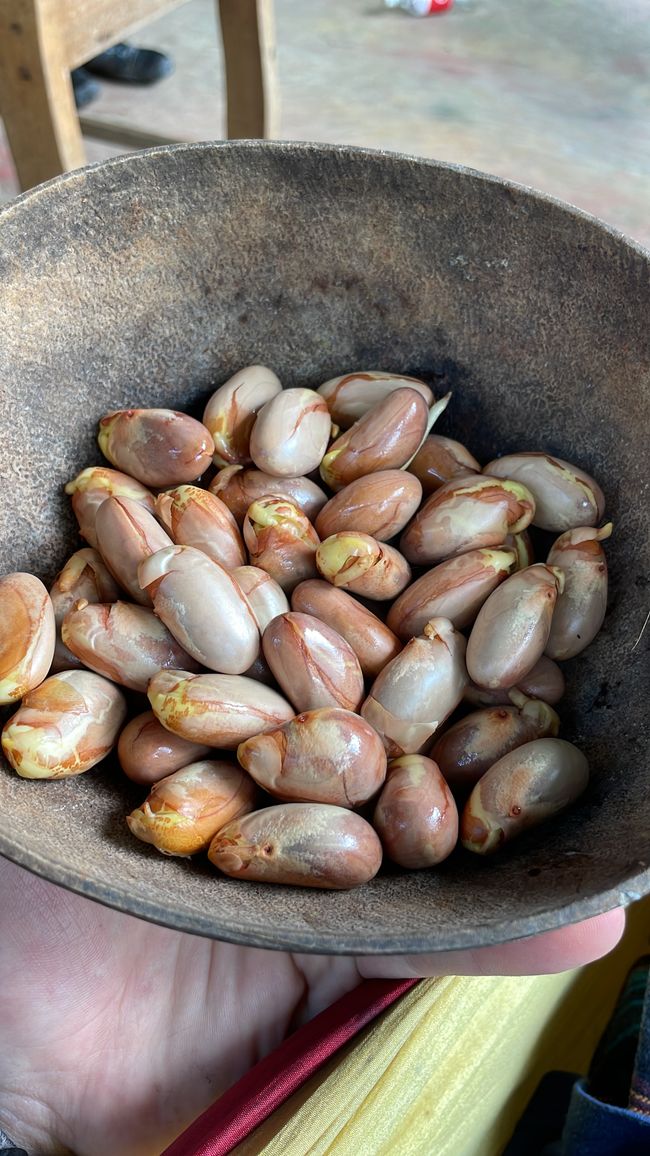
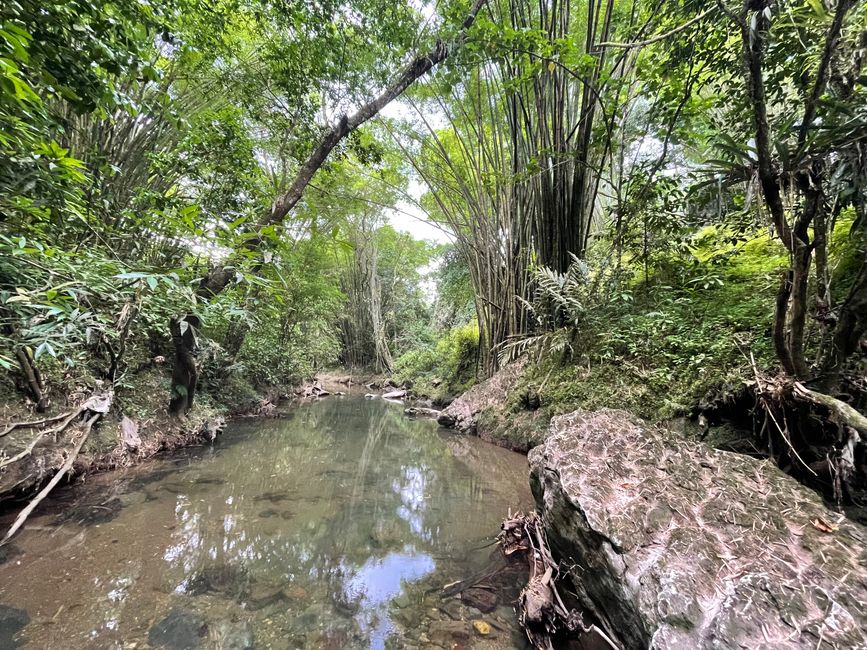
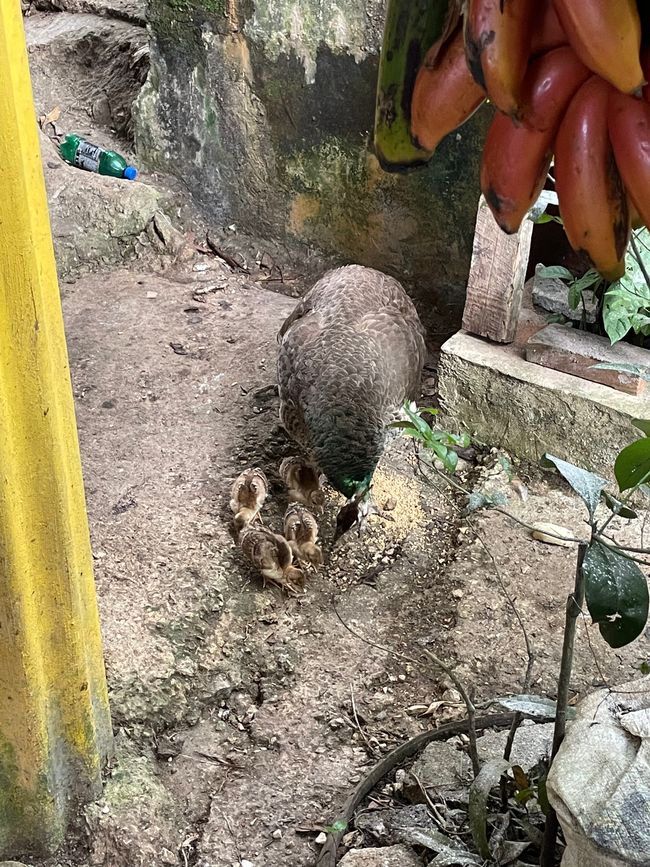
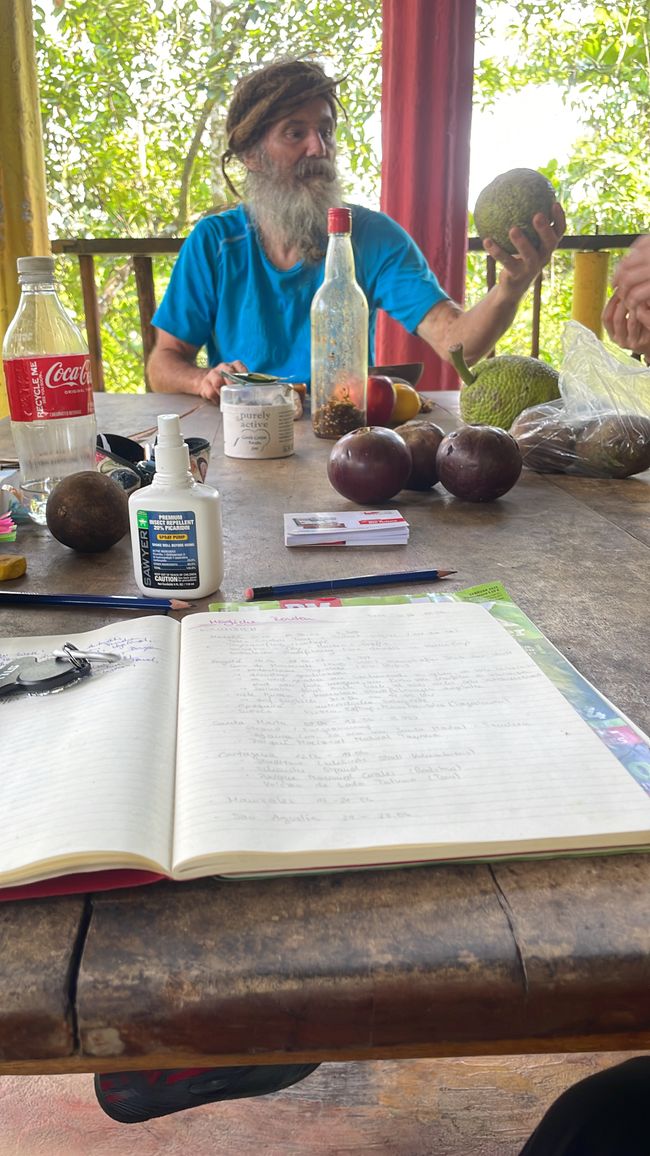
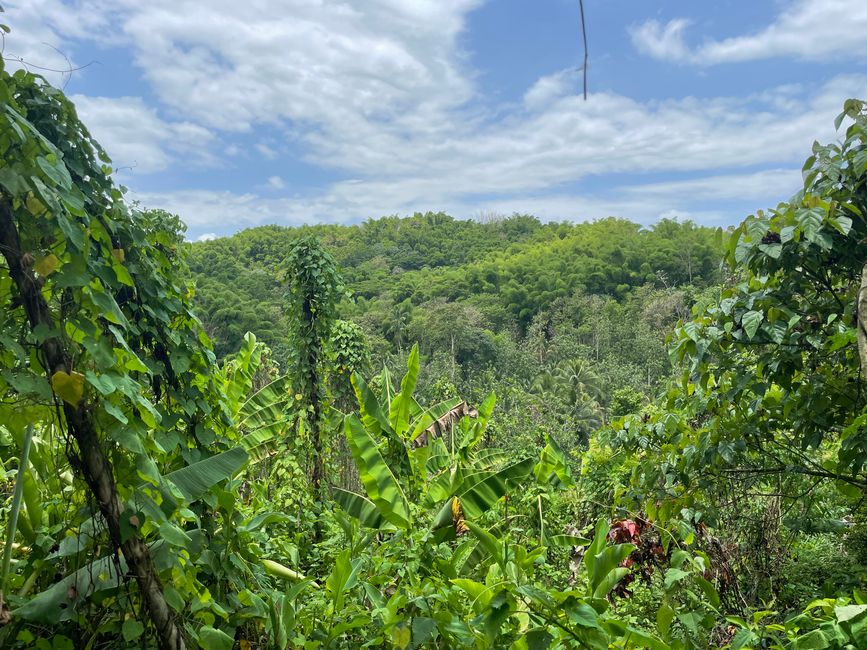
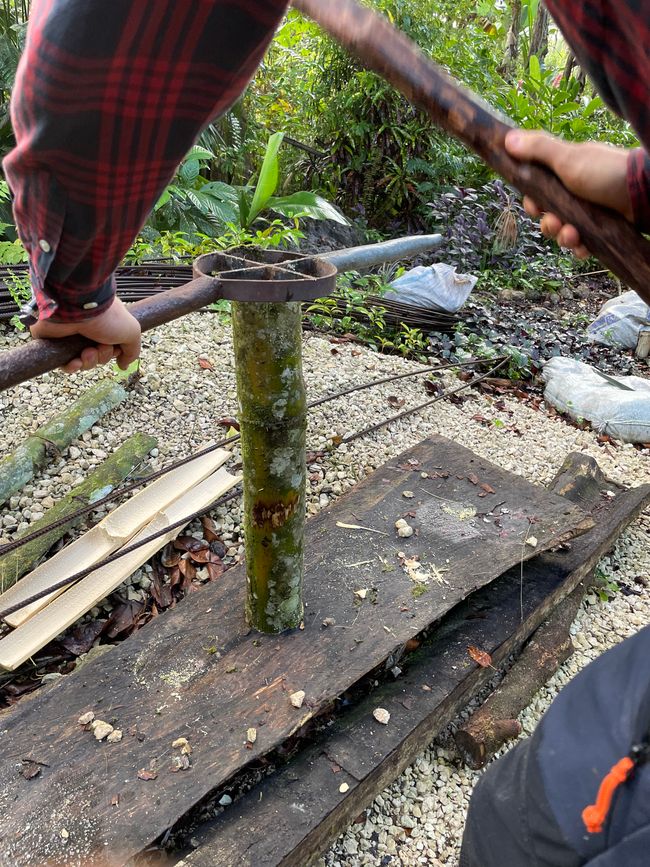
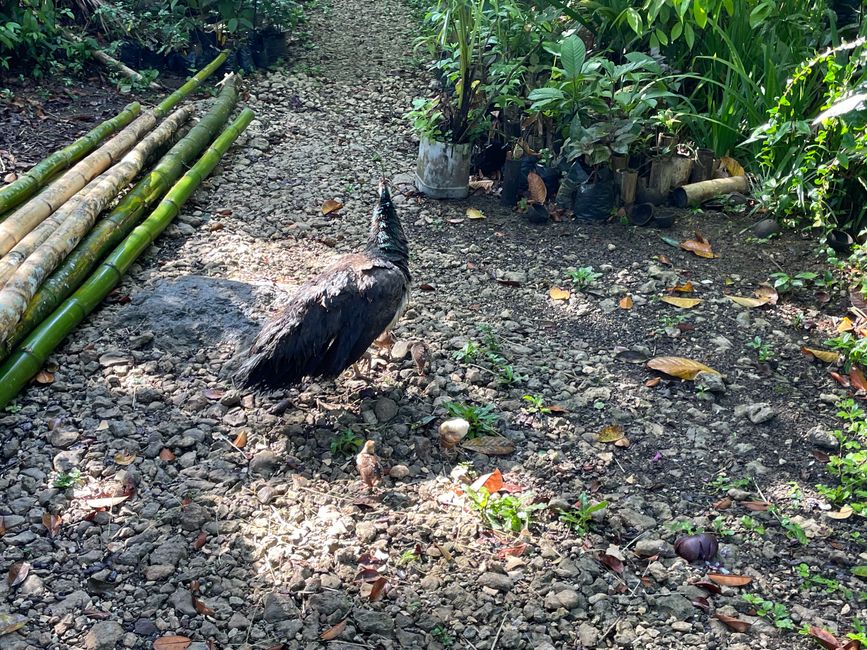
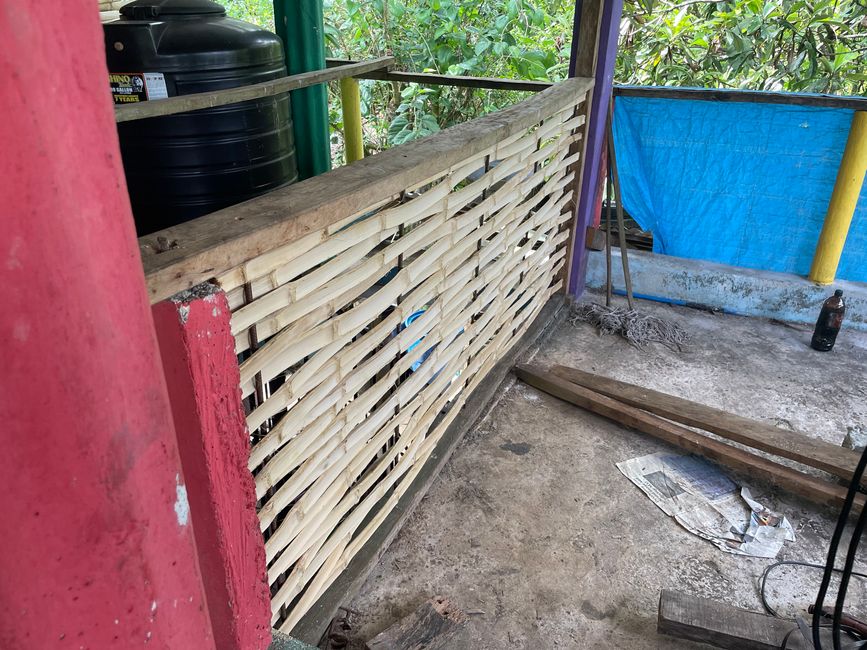
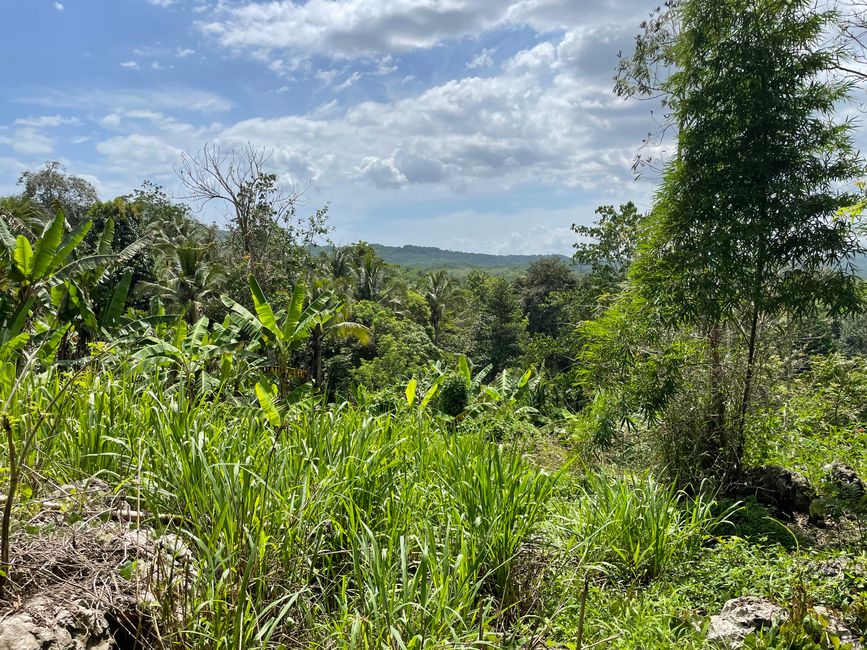
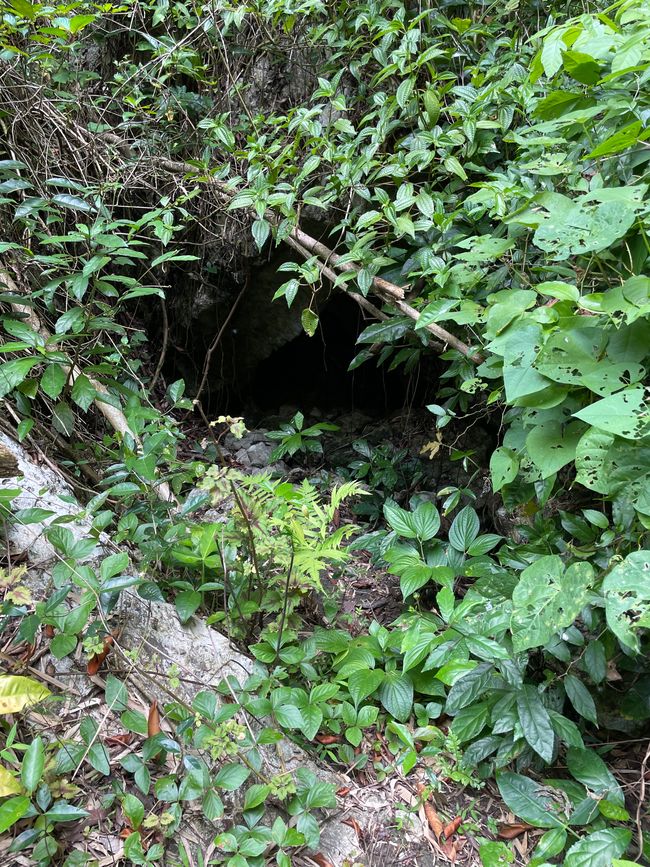
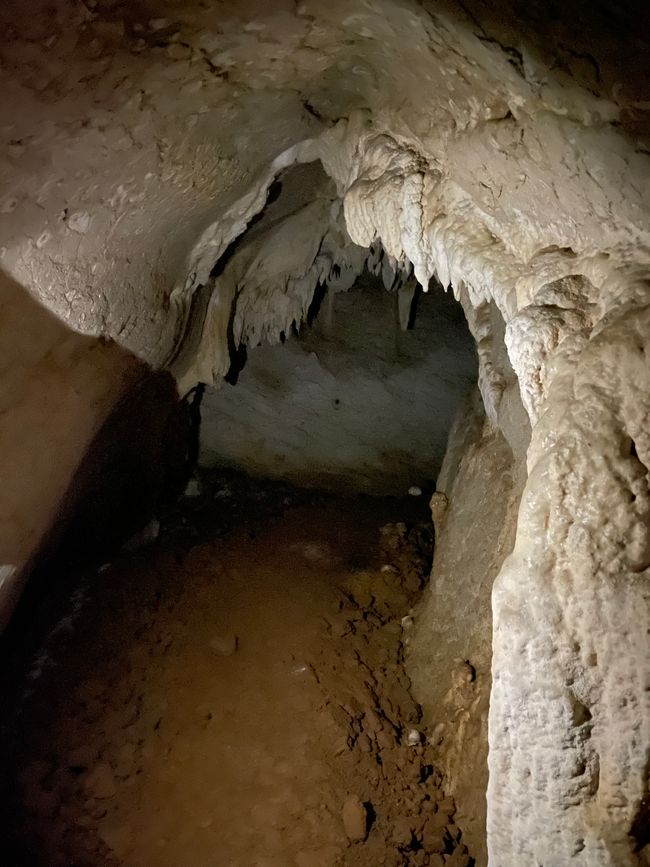
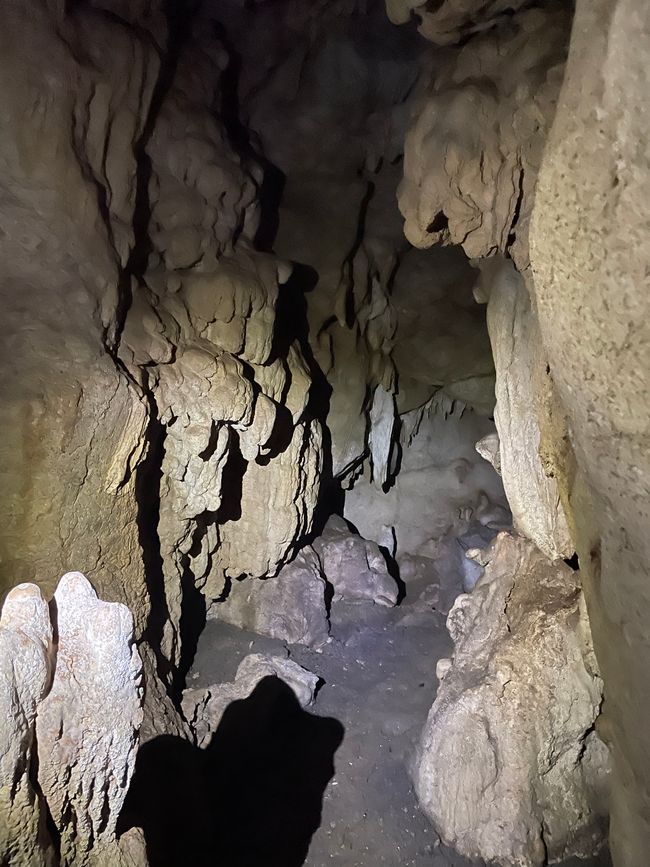
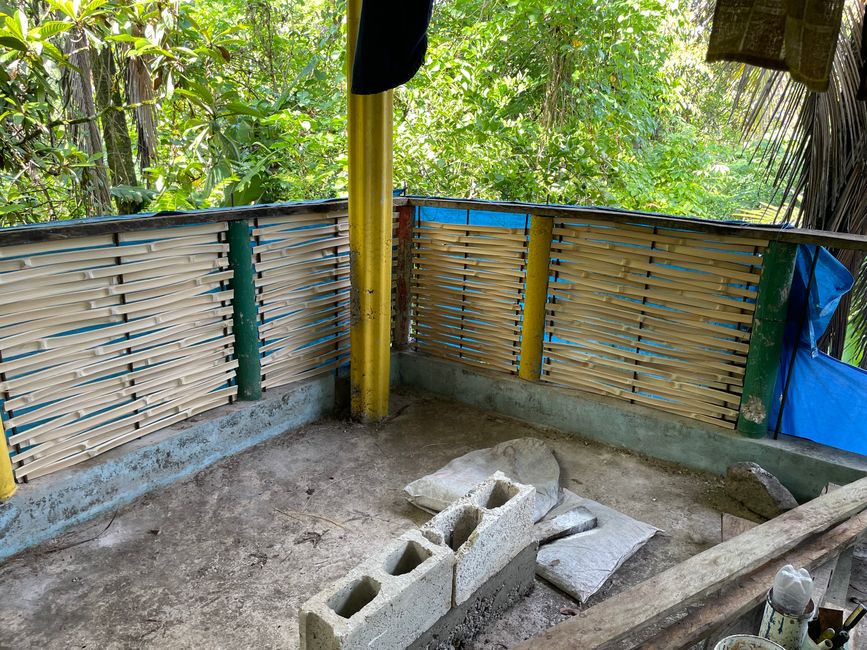
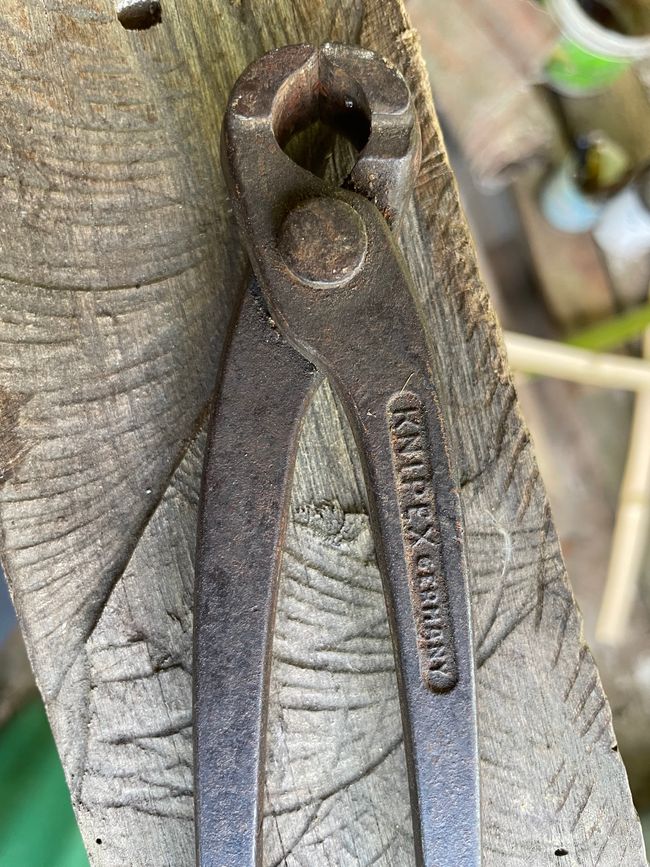
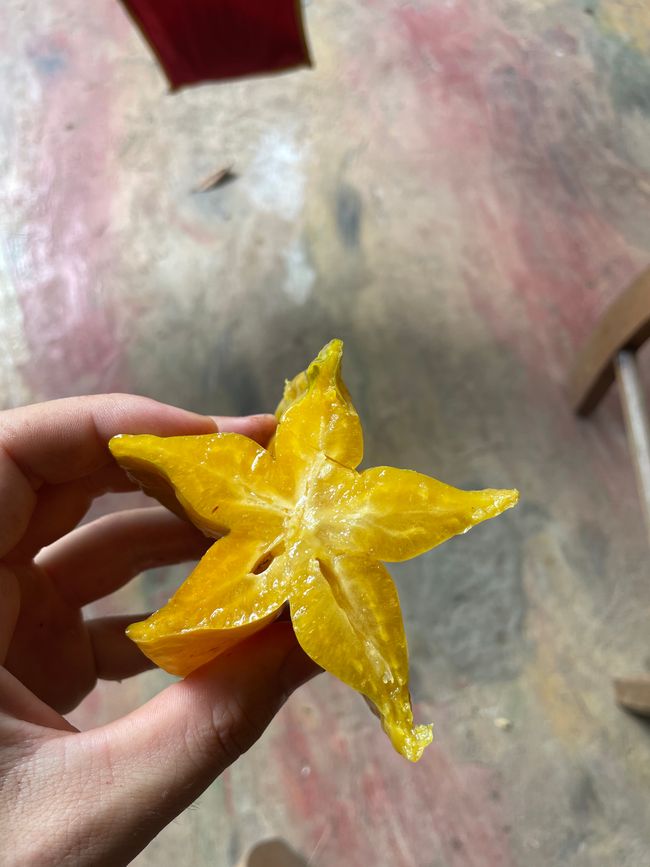
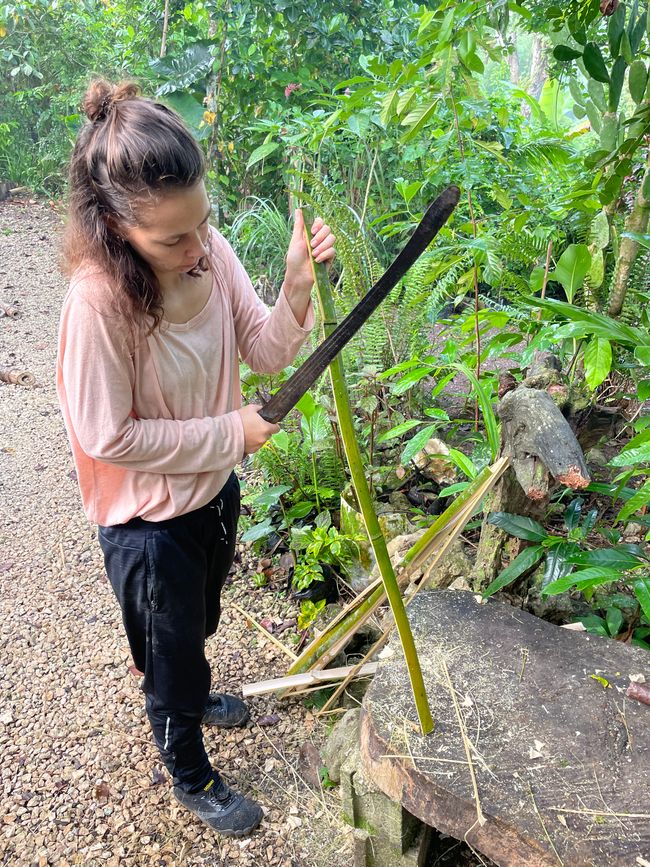
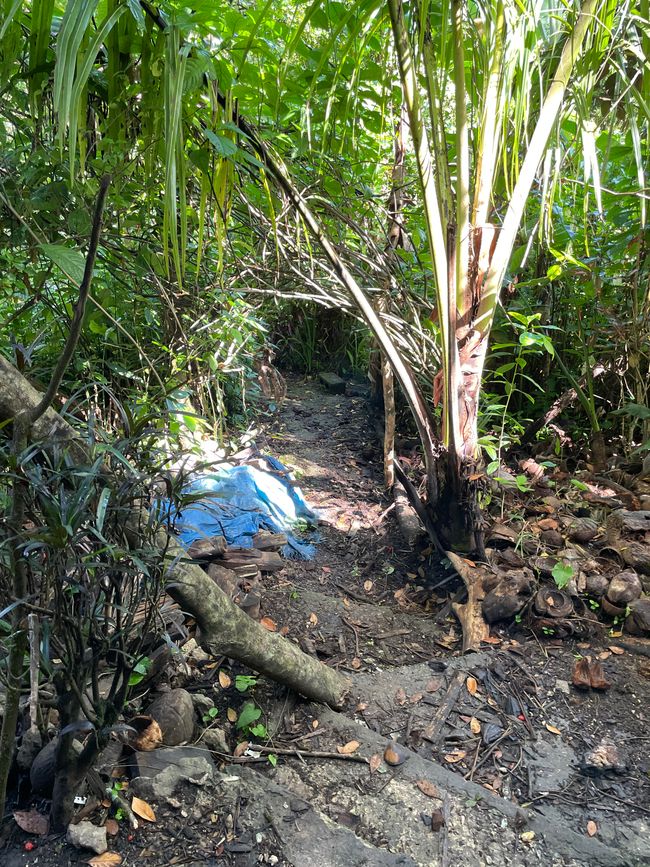
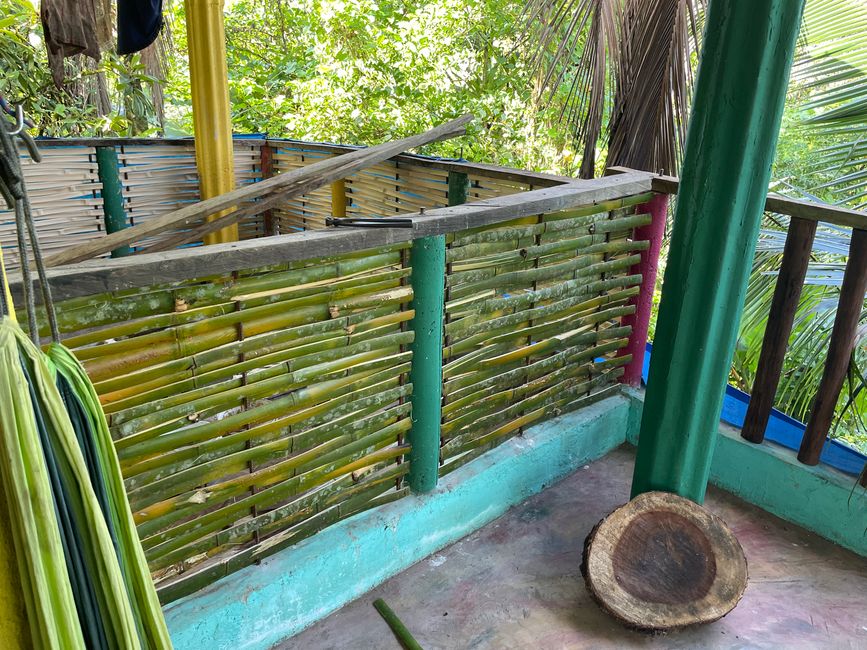
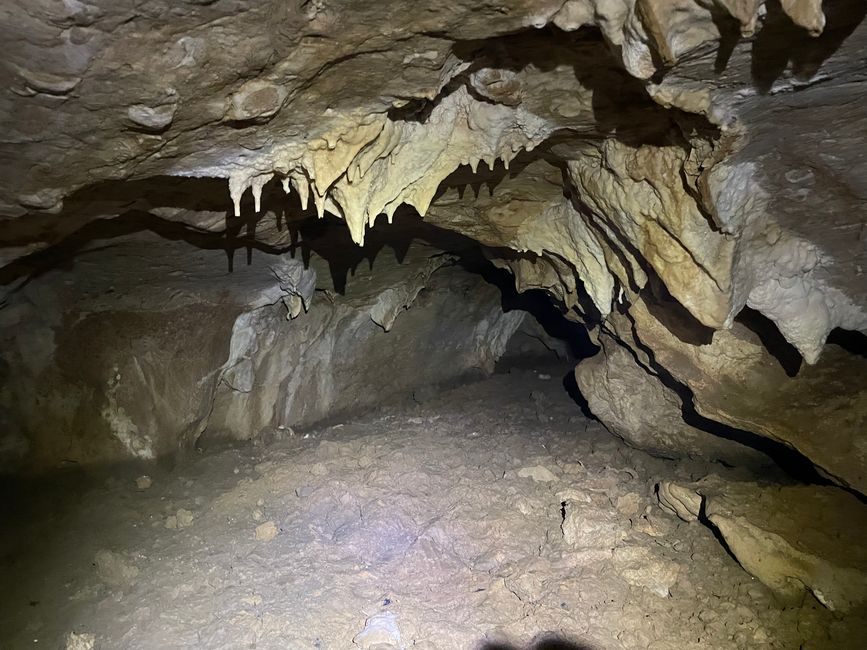
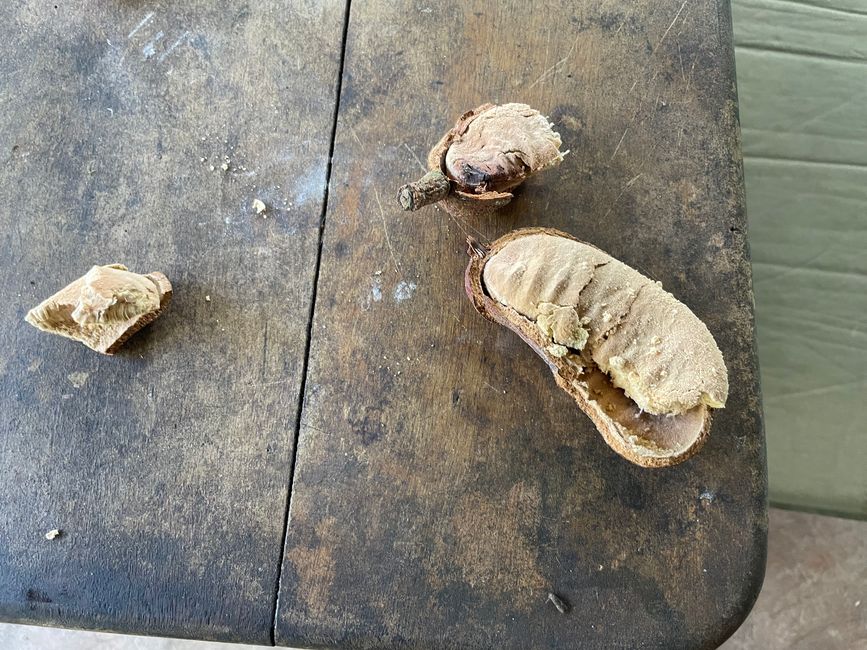
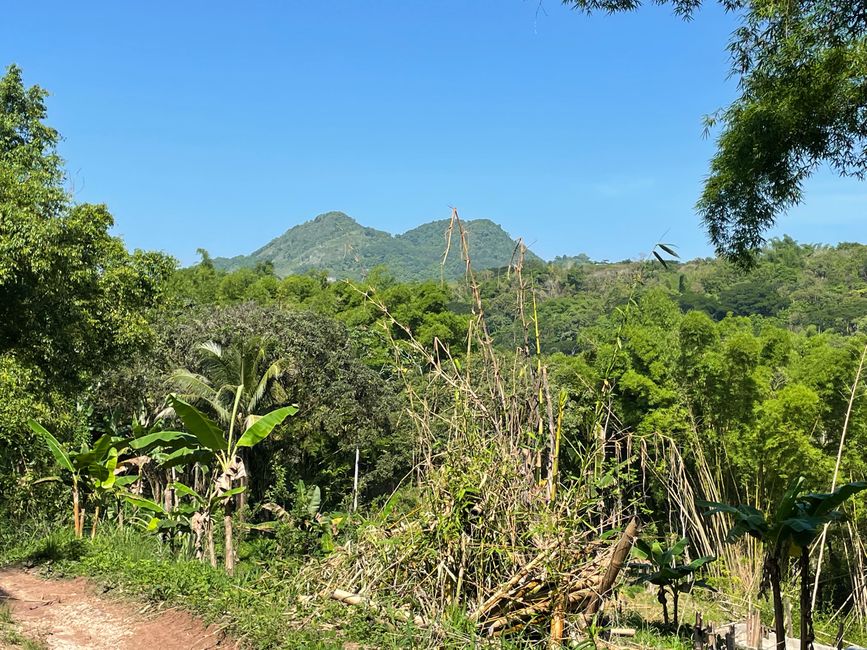
خبر پاڼه کې ګډون وکړئ
Hello everyone. Yes, we're still here and yes, this blog will continue. For the past 2.5 weeks, we were more or less 'trapped' in the Jamaican jungle. We didn't have a WiFi connection and only had internet through our phones - not enough to write a blog. So on April 26th, we drove to Thomas in the jungle. Thomas is a Swiss native who has been living as a Rastafarian in the jungle in Jamaica for 27 years now. The journey to Thomas was difficult. Caro & I had to share an emergency seat with another person in a route taxi for a good 2 hours. And we had to carry our luggage (yes, including the 20 kg backpacks) on our laps. Our legs fell asleep to the point where we couldn't move them anymore. It was one of the toughest taxi rides so far. From the last house in the small village of Cambridge, you have to walk through the jungle for about 20 minutes to get to Thomas. Thomas lives more or less in mosquito hell. We hadn't been there for half an hour and our arms and legs were already covered in mosquito bites. The 'amenities' at Thomas' place were quite minimal: there was a small outdoor shower (a hose with a small trickle of water). A delight for the mosquitoes. There was no bathroom or anything like that. The toilet didn't have a flush, but a bucket of water would do (there was also an outhouse). All the rooms were only covered with bamboo. In all the rooms, as well as in the kitchen, there were countless mosquitoes AND countless cockroaches. Super awesome. We even brought a few cockroaches with us in our backpacks to the next accommodation... Above our (incredibly uncomfortable) beds, there were mosquito nets - with countless holes. The nets were generally good, but once you have 4-5 mosquitoes inside, they don't come out that easily. And beetles would also get in. And cockroaches too.
Thomas had a relatively difficult personality. Due to years of isolation, he has become quite lonely and has gradually reduced his social interaction skills. He believed in extreme conspiracy theories, apart from the flat-earth theory, he believed in almost every conspiracy theory out there (9/11 was planned by the Americans, Bill Gates wants to reduce the world population to 500 million, Corona was a planned pandemic, vaccines are meant to make us sick, microchips are in the vaccines, climate change doesn't exist, etc.). I don't know why he didn't believe that the earth is flat.
The work at Thomas' place was relatively exhausting. We had to work in sturdy footwear, winter socks, long pants, and long tops - in 30 °C heat and 85% humidity. But that didn't help much against the mosquitoes. On the first day, we had to dig holes in the field, plant trees/plants, and do some watering. But our main task was to build a railing for Thomas' veranda. The available tools were limited and, if available, mostly worked poorly. Thomas never said how he wanted something done. But if he didn't like it afterwards, he made sure you knew. That's not what we call appreciation. We had to build everything 'Jamaica-style'. Without a level, without measurements, as long as it looked halfway decent.
The food for us, the Workawayers, was spartan. As a Rastafarian, Thomas lives completely vegan, meaning he avoids any animal products and salt. He only uses unprocessed fruits or vegetables (from the garden or the market). Unfortunately, he hasn't understood yet that vegan cuisine can also be varied: for almost the entire 2.5 weeks, we had the same food every day. There was only one meal a day, usually between 4 and 5 o'clock in the afternoon. In the mornings, we had a piece of jackfruit every day. Jackfruit is a local fruit that weighs 20-50 kg and contains 100-300 seeds. The jackfruit seeds can be eaten and are used as a meat substitute. The flesh of the jackfruit is incredibly sweet and the juice is sticky like super glue. After a week, you'll be tired of it. While eating, we had to remove the seeds so that we could use them in the evening meal. We weren't allowed to enter Thomas' kitchen, it's a spiritual place where Workawayers (non-Rastafarians) have no place. Animal products were not allowed near this kitchen, let alone consumed in any part of the house. However, Thomas keeps chickens, doves, and fish in overly cramped enclosures. The chickens peck each other's feathers out because they don't have enough space.
Carolin wasn't allowed to use a hairbrush (hairbrushes symbolize the division of humanity and are inherently bad) and all processed products (cookies, soda, bread, etc.) cause cancer or harm the human body in some way.
Despite the current rainy season, the water and drinking water supply was quite difficult. The Workawayer before us accidentally left the tap with drinking water open, so the main drinking water tank was completely empty. There was still a reserve tank, but it was almost empty too. Every time we got something to drink, we felt guilty, and if Thomas saw it, he usually made a remark about being very wasteful. We rarely drank more than 1-1.5 liters (at over 30 °C). The same went for shower water. It was scarce and showers were rare. Thomas said we should wash ourselves better in the river - but considering how much he smelled, that wasn't really an option. Thomas' personal hygiene left much to be desired. He usually washed himself in a stinky fish pond (without soap, of course). The clothes were washed by hand in a plastic bowl, here's how Thomas did it: dirty rainwater in the bowl, a little detergent on it, let it soak for 5 minutes, done. The (soapy) water can be dumped into nature afterwards.
Overall, not everything was bad during our time with Thomas. We learned a lot about his very simple way of life and how he manages day to day. In some respects, we could also learn from it and restrict or simplify our own lives and consumption. However, a life as a Rastafarian in the Jamaican bush is definitely not for us. We also got to know many different fruits that we had never heard of before: various types of bananas (including non-sweet ones), jackfruit, bilimbi, black sapote (chocolate pudding fruit), surinam cherry, breadfruit, stinky toe (it smells like it sounds but tastes better), starapple, starfruit, ice-cream beans, miracle fruit (if you eat it and then bite into a lemon, the lemon tastes incredibly sweet), rusty mango, and many more whose names we couldn't remember.
Thomas told us about a cave that supposedly exists on his property. However, he didn't think it was necessary to show it to us ('Maybe I'll show you if I feel like it, but maybe not'). We explored the property on our own and stumbled upon that very cave by chance. It was quite exciting, especially since you could walk about 100 meters inside. It was pitch black inside with many stalactites and stalagmites.
After our time with Thomas, we went to Negril in western Jamaica. To do that, we found a taxi in Montego Bay that was going to Negril. We asked both the taxi driver and his 'assistant' several times if they were going to Negril. 'Yah Mon, Yes, Of Course, No Problem.' We got in and were kicked out of the taxi in Savanna-la-Mar with the explanation that the journey ended there. Savanna-la-Mar is a 30-40 minute drive from Negril. Sorry, but I don't understand that at all. I can understand that many people here are not doing well economically and that many people depend on every dollar. But why do I have to deceive tourists so blatantly and obviously? The taxi didn't even indicate where it was going. That's just too cheap for us, and we are currently not willing to return to this country at any time. Perhaps it is appropriate for society here to rethink their treatment of tourists...
خبر پاڼه کې ګډون وکړئ
ځواب
